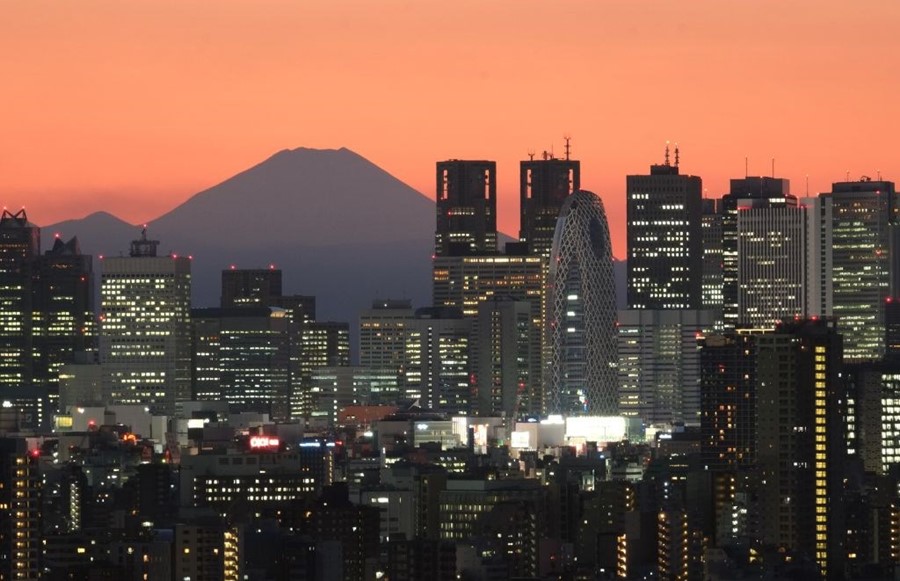From one of the last remaining arthouse cinemas to the best places to pick up a photo book, here is AnOther’s guide to Tokyo
Introducing a series of alternative city guides, specially curated for the cultivated traveller.
Tokyo is a city for wanderers. Most visitors to the Japanese capital are likely to describe their trip as two things: an assault on the senses and one long hike. Between wide roads, flashing lights and the constant hum of people, trains and noisy adverts is a sprawling web of narrow alleys. These are packed with tiny bars, endless restaurants and specialist shops.
It would take multiple lives to tour all of Tokyo’s offerings by foot – but that’s the best way to experience it. As one of the most populated cities in the world, a lot of its best gems are tucked above street level. More often than not, you’ll eat your most memorable meals and find the rarest bookshops on the fifth floor of an apartment building on a low-lit backstreet.
Below is a list of ten particularly special spots that are worth adding to your list – but don’t try to pack in too much. Leave time for your own ramblings, for this is a city with thousands more gems yet to be found.
Jimbocho Book Town
Tokyo’s second-hand book Mecca, Jimbocho, is one of the world’s oldest book towns, dating back to the 1880s. Its narrow streets are said to be lined with over 400 shops that tend to specialise by genre or era. From erotic photo books to gothic novellas; vintage film scripts to theatre posters; antique maps and woodblock prints – name any niche and you will find its paradise here.
City Country City
If you’re heading to Shimokitazawa – Tokyo’s most popular destination for thrifting – stop by at City Country City for records, coffee, and a plate of pasta. Tucked away on the fourth floor of an office building, the space functions as both a shop and a cafe. Tokyo is a mecca for record collectors, and there are plenty more stores to check out – but this is the only one that serves a changing menu of pastas and homemade cakes.
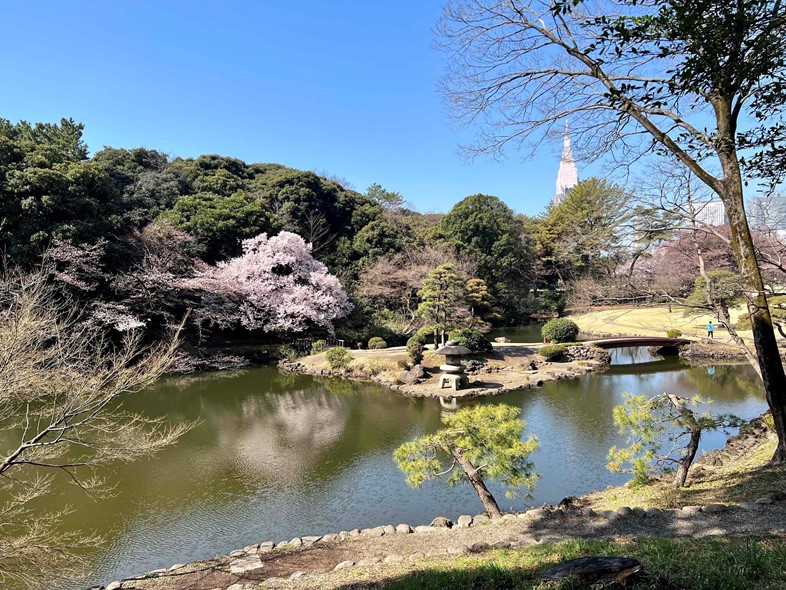
Shinjuku Gyoen National Garden
The hustle and bustle of a capital city can feel overwhelming. In Tokyo, this chaos is balanced by an inimitable calm – as easily found in its quiet backstreets as it is in world-heritage temples. Shinjuku Gyoen is one of Tokyo’s largest parks, with carefully tended gardens that shift with each season. Its century-old grounds look just as beautiful basked in the spring cherry blossoms as it does scattered with autumn leaves. Located just a five-minute walk from Tokyo’s busiest transport hub Shinjuku, it’s the perfect time out from the ruckus of the city centre.
Paddlers Coffee
Tokyo is one of the most convenient cities in the world, with vending machines and convenience stores at literally every corner. But a good coffee – that isn’t Starbucks, or served in a sugary can – is surprisingly hard to find. Initially set up as a pop-up in 2013, Paddlers now has a permanent branch in Hatagaya, where it serves freshly imported beans from Portland’s famed Stumptown Coffee Roasters. With a calm wooden interior, communal tables, and a leafy terraced garden, it’s favoured by locals as the perfect place to read or meet a friend. Complete with a small exhibition space, its ethos is centred around bringing the local community together. Make sure to order one of their signature hot dogs, served in a bun from a nearby bakery.
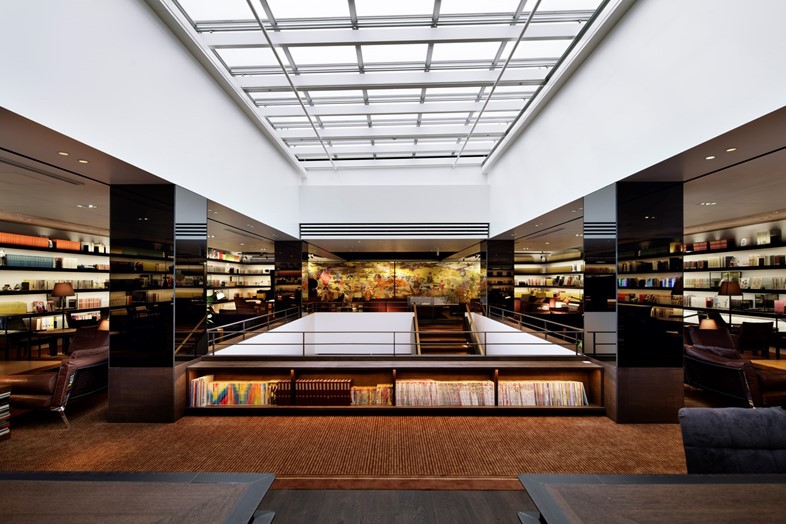
Ginza Tsutaya Books & Daikanyama T-Site
It would be easy to lose a few hours (or more) trawling the pristine shelves of Tsutaya’s two book emporiums. These are the largest and most popular art bookstores in Tokyo, for a reason. You will find everything here – from rare editions of Japanese post-war photo books, to the latest fashion catalogues and independent presses. Both are located in two of Tokyo’s most desirable neighbourhoods. Ginza is the city’s glitziest district, with some of its swankiest restaurants and oldest department stores. Daikanyama is its cooler cousin, with designer boutiques, curated antique shops, and chic cafes lining its leafy streets.
21 21 DESIGN SIGHT
Brainchild of the late designer Issey Miyake and renowned architect Tadao Ando, this museum is a marvel in itself. Nestled in a large green park, its angular steel roof houses a concrete structure that eschews the conventional model of a white cube gallery. The museum runs a programme directed by some of Japan’s most renowned designers, usually interrogating the role of design in both our daily lives and society at large
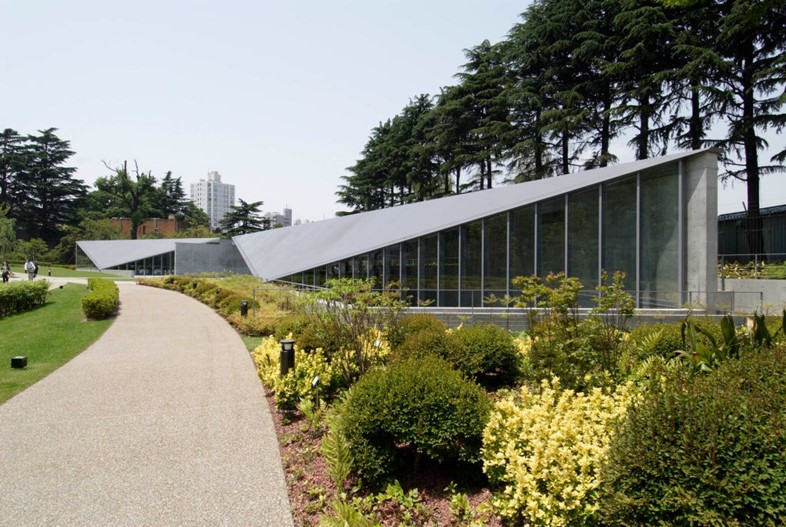
Flotsam Books
Take a step off the beaten track and visit Flotsam, a bookshop with a cult following that specialises in fashion, art and photography. Founded by Takayuki Kobayashi – a respected figure in Tokyo’s artbook scene – Flotsam is small, but don’t let that deter you. The shop is stacked with a curated selection of both foreign and Japanese publications, displayed in piles and on shelves that cover almost every inch of the shop. Its location in Daitabashi is out of the way from other tourist destinations, so to make the most of the trip, tie it in with some vintage shopping in the nearby neighbourhood of Shimokitazawa.
The Bellwood
The phrase ‘omakase’ literally translates to ‘I’ll leave it up to you’. In the culinary world, it refers to a style of high-end dining in which the chef retains complete control over what you eat. The Bellwood – voted one of Asia’s 50 best bars in 2023 – is known for its inventive cocktails and, more recently, its hidden sushi counter. Served in a private backroom with just four seats, their omakase menu serves 12 pieces of nigiri with three paired cocktails, for ¥12,000 (£65). The menu is created by executive chef Ayaka Terai, who is prolific not just at the young age of 26, but also as a female chef in industry where women are rarely seen behind the knife.
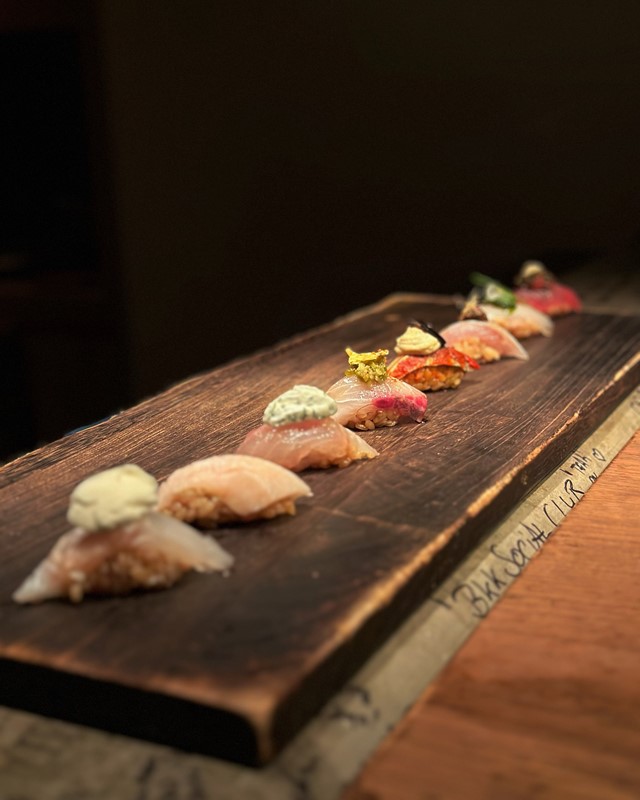
Waseda Shōchiku
Waseda Shōchiku is one of the last remaining arthouse cinemas that still runs double features. Run by students of the nearby Waseda University, the cinema recently celebrated its 70th anniversary and continues to exclusively run double bills of both new films and old classics. While they do run international releases, it’s worth noting that all foreign-language films are only subtitled in Japanese.
SHeLTer
Audiophiles are an obsessive breed, but nowhere are they more dedicated than in Japan. The history of Japan’s renowned listening bars can be traced as far back as 1929. Back then, they were known as ‘jazz kissa’ (jazz cafes). These cafes boomed after the Second World War when few people could afford luxuries like gramophones. The cafes became a haven for music lovers, and inspired the listening bars we know today.
SHeLTeR is one of the city’s most revered, but its location an hour outside of the city centre in Hachioji means it’s fairly untrodden. Established in 1989, it’s a dimly lit, bohemian looking bar littered with sofas and armchairs. Its sound system is fully customised, from the cables to the woofer unit, designed to reach every nook with clarity and precision. From four-to-the-floor to jazz, rock and experimental music, you can expect to hear a wide range of music here. Opening days vary, so check its website for the schedule.
